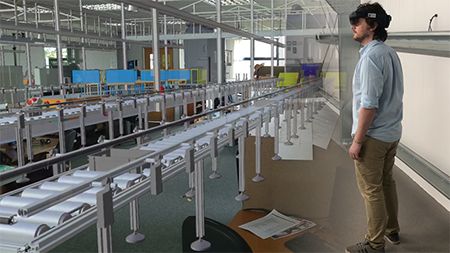Theorem are pleased to announce the latest addition to the Creo View product suite that enables Creo View.pvz to XR output using Theorem-XR.
When working with large scale and complex Creo View datasets wouldn’t it be beneficial to be able to visualize and review the data at full scale and in a real-world context?
Using the latest Augmented, Mixed and Virtual Reality technologies (XR) can make this possible, and the latest release of Theorem-XR removes the struggle of getting Creo View data into these innovative technologies.
Theorem-XR is a server-based technology that enables fast, efficient, flexible and automated processing of your Creo View data, while maintaining associated metadata.
Taking Creo View data into XR couldn’t be simpler with Theorem-XR:
- It is as simple as dragging and dropping your Creo View data on to the server
- Integrates with PTC Windchill
- Supports huge complex Creo View datasets
- Removes the issue of getting your Creo View data into XR
- Supports remote collaboration
- Creo View data can be supplied in additional output formats for further downstream use (3D DPF, ALIAS, Azure Remote Rendering, FBX, GLTF, JT, MAYA, VRED and Unity Asset Bundle)
Theorem-XR is data and device neutral enabling you to visualize your 3D CAD and PLM assets in context and at full scale, using Augmented, Mixed and Virtual Reality technologies on the device of your choice.
Out of the box Theorem-XR offers ‘standard’ engineering-based use case experiences that work collaboratively, enabling remote teams and home-based staff to join and work in an immersive multi-user environment, from anywhere.
The experiences are underpinned by the Visualization Pipeline which provides a fully automated process that takes 3D data assets directly into Theorem-XR, or for the creation of assets for use in internally developed XR solutions. Using the Visualization Pipeline to prepare and optimize large and complex Creo View data removes the difficulties that can be encountered when trying to get 3D data into XR.
Using Theorem-XR to undertake everyday engineering tasks allows you to visualize your Creo View data at full scale and in context, rather than from the confines of a 2D computer screen. Utilizing the latest XR technologies help to reduce costs, improve product quality and support the faster development of products and manufacturing processes across the enterprise by bridging the gap between the digital and the physical.



